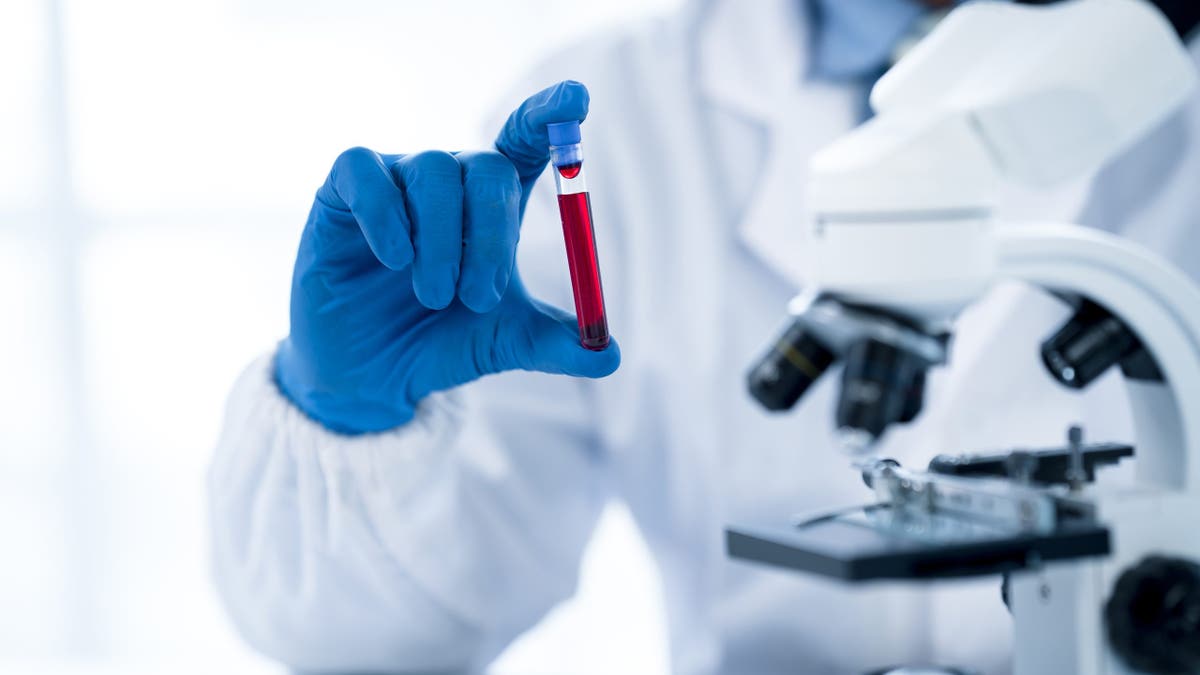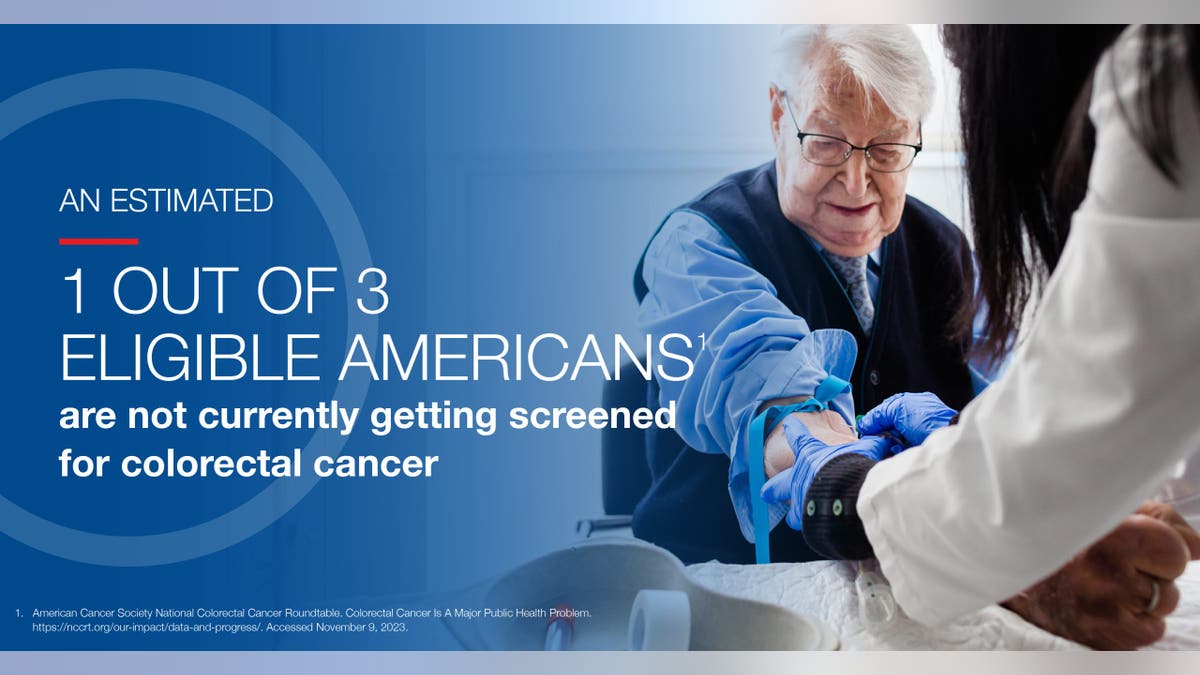Colorectal cancer now leading cause of death in young adults
Gastroenterologist Dr. Ali Khan on what might be behind rising colon cancer among people under 50 and screening recommendations.
Screening for the second leading cause of cancer deaths just got a bit easier.
The U.S. Food and Drug Administration (FDA) announced the approval of a new blood test for colorectal cancer (CRC).
Shield, made by Guardant Health in California, is the first approved blood test that is considered a primary screening option for the disease and meets Medicare coverage requirements, the company stated.
WHAT IS COLORECTAL CANCER? SIGNS, SYMPTOMS, RISKS AND MORE OF THE GLOBAL HEALTH CONCERN
The FDA’s approval, announced Tuesday, follows a large clinical trial that included 20,000 average-risk adults, which found that Shield had an 83% sensitivity for the detection of CRC.
Those findings were published in The New England Journal of Medicine in March.

Shield, made by Guardant Health in California, is the first approved blood test that is considered a primary screening option for the disease and meets Medicare coverage requirements, the company stated. (Guardant Health)
There is another approved blood test, Epigenomics’ Epi proColon, but it is a second-line screening option, which means it can only be given to patients who have been offered first-line options and have a history of not completing CRC screening, according to Michael Weist, a spokesperson from Guardant Health.
Robert Smith, PhD, senior vice president of Early Cancer Detection Science for the American Cancer Society in Atlanta, confirmed that Shield is the only blood test currently available for colorectal cancer screening.
TRAGIC CANCER LOSS INSPIRES NEW YORK TECH ENTREPRENEUR TO ADDRESS ‘URGENT MEDICAL NEED’
"It compares favorably with other colorectal cancer screening tests," such as colonoscopy, CT colonography and stool tests, Smith, who is not affiliated with Guardant, told Fox News Digital.
"The test … likely will be more appealing to people who have never been screened, or not recently screened," he added.

The FDA’s approval follows a large clinical trial that included 20,000 average-risk adults, which found that Shield had an 83% sensitivity for the detection of colorectal cancer. (Guardant Health)
The key advantage of the blood test is that it can be done during a routine doctor’s appointment without the need for prepping or taking an entire day off from work.
"It offers the potential to detect colorectal cancer in a person who is non-adherent with screening recommendations, asymptomatic and willing to get this test based on preference, convenience or both," Smith said.
"Compared to colonoscopy, it is simpler and less time-consuming."
Shield has shown "reasonable sensitivity and specificity compared to other blood/stool tests," according to Dr. Shuji Ogino, chief of the Molecular Pathological Epidemiology program at Brigham and Women’s Hospital, which is a member of Mass General Brigham in Boston.
"Compared to colonoscopy, it is simpler and less time-consuming," Ogino, who is not associated with Guardant, told Fox News Digital.
Risks and limitations
While the risks of the Shield test have not been studied in a population of regular users, they are likely to be minimal, according to ACS’ Smith.
"However, the Shield test does not offer the same level of benefit to prevent colorectal cancer by detecting and removing precursor lesions (polyps), which is a significant benefit from regular screening with the currently recommended tests," Smith cautioned.

The Shield blood test is made by Guardant Health, which is based in Redwood City, California. (Guardant Health)
That downside would be offset by more unscreened people choosing to get screenings, he noted.
"The Shield blood test does have a lower degree of sensitivity than the Cologard stool test for detecting colon cancer," Stephen Grabelsky, M.D., a hematologist and medical oncologist at the Eugene M. & Christine E. Lynn Cancer Institute at Boca Raton Regional Hospital, told Fox News Digital.
The test is only intended for people with a standard risk for colon cancer, which excludes patients with a family history of colon cancer or a personal history of inflammatory bowel disease, Grabelsy added. (He also was not involved in the test's development.)
Early detection is key
The compliance rate for colorectal cancer screenings is only about 59% — well below the National Colorectal Cancer Roundtable’s goal of 80% for eligible individuals, according to Weist.
The test is expected to be commercially available by this fall.
"More than one out of three eligible Americans – over 50 million people – do not complete CRC screenings, often due to the perception that other available options, such as colonoscopies or stool-based tests, are invasive, unpleasant or inconvenient," he said.
CLICK HERE TO GET THE FOX NEWS APP
When detected early, colon cancer has a relative survival rate of 91% — compared to just 14% if the cancer has spread to distant parts of the body.
"Early detection is critical," Weist said. "The most effective screening test is the test that gets done."
CLICK HERE TO SIGN UP FOR OUR HEALTH NEWSLETTER
The Shield test is indicated for colorectal cancer screening in individuals age 45 and older who have an average risk for the disease, he told Fox News Digital.
The test is expected to be commercially available by this fall.

The Shield test is indicated for colorectal cancer screening in individuals 45 and older who are at average risk for the disease. (Guardant Health)
Patients interested in the Shield test should discuss the benefits and limitations with a health care provider before making a choice, Smith recommended, and should also determine whether their insurance will cover it.
"It is important to appreciate that a colorectal cancer screening test that is positive is not complete until the patient has had a colonoscopy," Smith noted.
For more Health articles, visit www.foxnews/health
"Any non-colonoscopy screening test for colorectal cancer that is positive must be followed up with a colonoscopy."










































